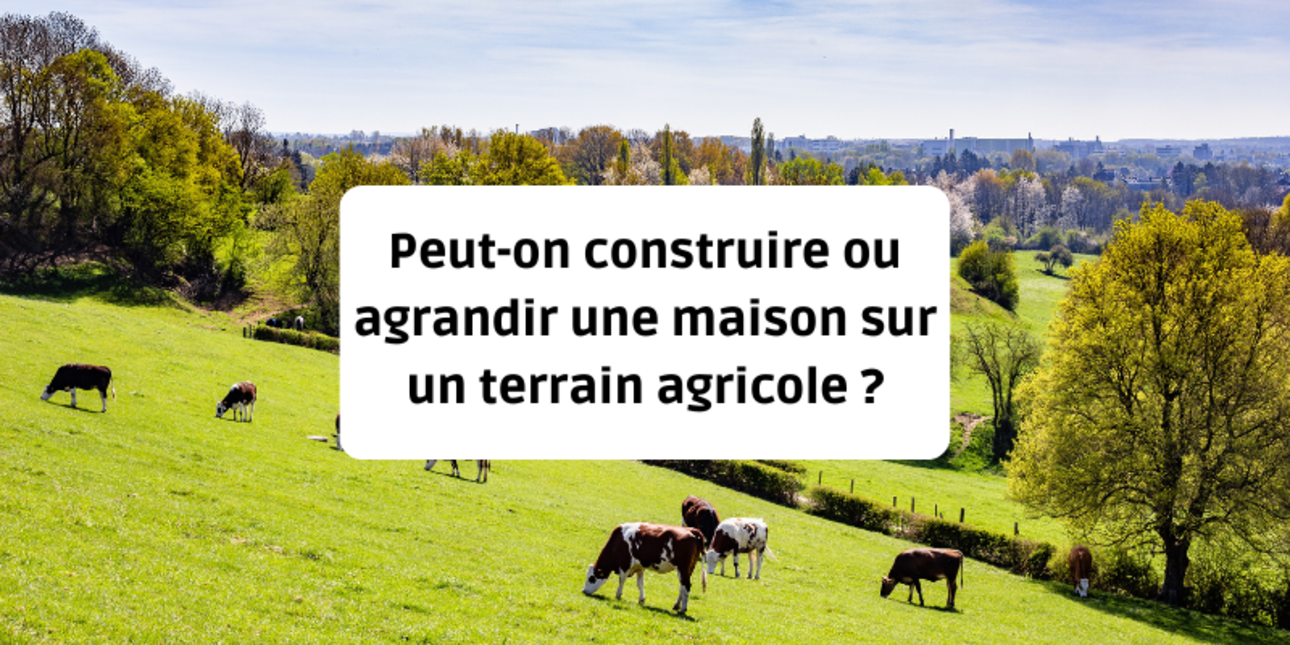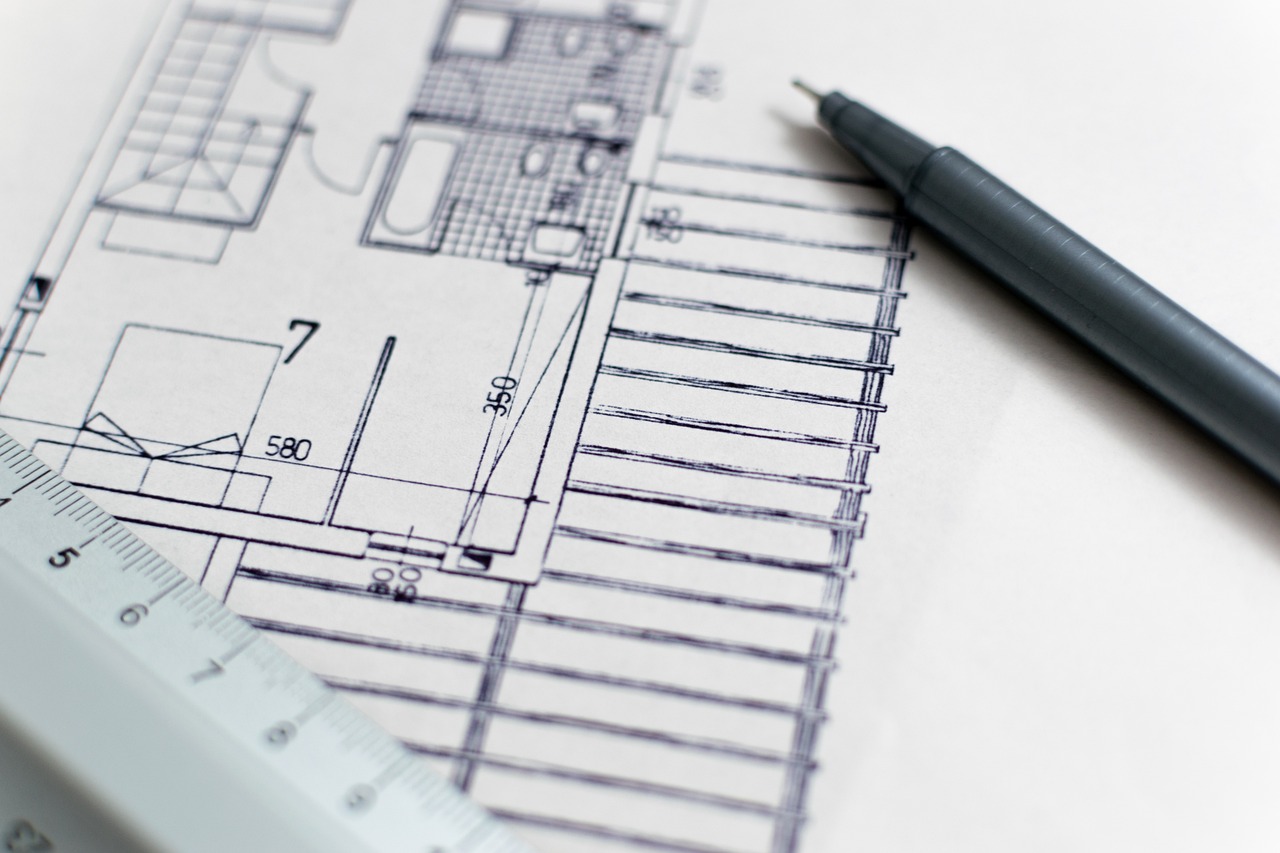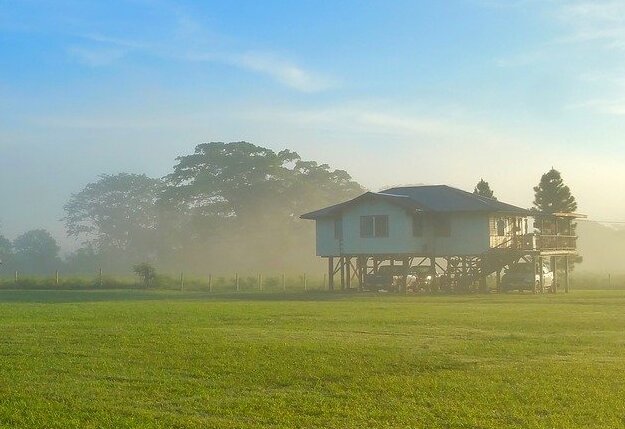
Do you have a building or extension project in an agricultural area? Have you just bought a farm or an old farmhouse that you want to renovate and extend? This article will help you find out whether you can build or renovate a house on agricultural land.

This document tells you how the land on which you are planning to build is classified.
If the commune has not drawn up a PLU, or a Plan d'Occupation des Sols (POS), the national town planning regulations apply.
If your land is classified as an Agricultural Zone, building is highly regulated. Articles L 111-1-2 and L 151-11 of the town planning code authorise the following in agricultural zones:
Zone A" designates a communal sector "protected because of its agronomic, biological or economic potential as farmland". It is therefore reserved for agricultural or pastoral use.
The "Zone U" designates urban areas and includes already urbanised sectors and sectors where the existing public facilities or those in the process of being built have a capacity to accommodate a wide range of uses.
Agricultural buildings (or buildings that are an extension of agricultural activity) are therefore permitted on a parcel of land located in an agricultural zone. However, planning permission for a house will only be granted if it is "necessary for farming".
The geoportail de l'urbanisme website provides a map of the different zones, giving you a first level of information on what is permitted or prohibited in a given area.
Whatever the zone, you will then need to obtain planning permission for your project.
One way of building your home on agricultural land is to change the classification of the land in the PLU to make it suitable for building. Your local council can change the category of a plot of land when it revises the PLU.
To obtain this downgrading, you need to submit a request to your local planning department, providing as much information and supporting evidence as possible. The size of the plot, the proximity of other dwellings, and access to electricity, water and sewerage networks are all factors that will be taken into account in your application.
However, this procedure will be lengthy, as the PLU is not revised every year, and authorisation will be highly uncertain, particularly because of the Zero Net Artificialisation Law.
The artificialization of land is the transformation of agricultural, natural or forest land by development actions, which can lead to its total or partial sealing. This urbanisation process is usually permanent.
The "Climate and Resilience Law" of 22 August 2021 set a target of halving the rate of land artificialisation between 2021 and 2031 (compared with the previous decade) and achieving zero net artificialisation by 2050.
In response to the difficulties encountered by local authorities in applying this law, a new law was passed on 20 July 2023 "aimed at facilitating the implementation of objectives to combat the artificialization of land and to strengthen support for local elected representatives".
This means that local authorities can urbanise a maximum of 125,000 hectares between now and 2031.
As regional management could make it impossible to create new buildings in rural areas, a "rural guarantee" of one hectare has been introduced for all municipalities covered by a PLU.
This means that local authorities have very little room for manoeuvre when it comes to downgrading parcels of agricultural land.

As a matter of principle, the construction of buildings in agricultural zones is strictly reserved for farmers.
It may therefore be in your interest to become a farmer in order to be able to build your main residence. But as we saw earlier, building a house is an exception and will only be permitted if it is essential to the farming activity.
You will therefore need to demonstrate the need for a close and permanent presence. The size and nature of the production will be taken into account by the instructing authorities. The mere presence of equipment in a storage shed will probably not be enough to prove this need. In addition, the proposed construction must not adversely affect the protection of natural areas and landscapes.
You've bought a house in an agricultural zone and want to extend it.
It is perfectly possible to build an annexe or extension to a building located in zone A if, according to law no. 2015-990 of 6 August 2015, "these extensions or annexes do not compromise agricultural activity or the landscape quality of the site".
Buildings that are not attached to a dwelling but are located on the same plot and whose use and operation are linked to it (e.g. a garage, garden shed, swimming pool, etc.) are therefore considered to be annexes. Raising or extending an existing building is considered to be an extension.
This work is therefore authorised, but must be minimal. In fact, only "measured" extensions, i.e. not exceeding 30% of the existing floor area (or even less, depending on the PLU), will be authorised.
Once again, you will need to be aware of the specific rules in your local area.
Converting a farm building (a barn, stable, stable, barn, etc.) into a dwelling requires a change of use for planning purposes. The procedure is the same as for building a new house.
You will need to be a farmer and prove that you need to live in the immediate vicinity of your farm site. The change of use must not compromise farming or the landscape quality of the site.
What's more, you need to obtain a favourable opinion from the Commission Départementale de la Préservation des Espaces Naturels Agricole et Forestiers (CDPENAF), which can considerably lengthen the administrative process.
You must therefore be a farmer to have the right to build a house on land in zone A, provided that you comply with the regulations and protect agricultural land. On the other hand, there is nothing to stop a non-farmer buying a house in an agricultural zone. You can even extend your home, but only in a measured way.